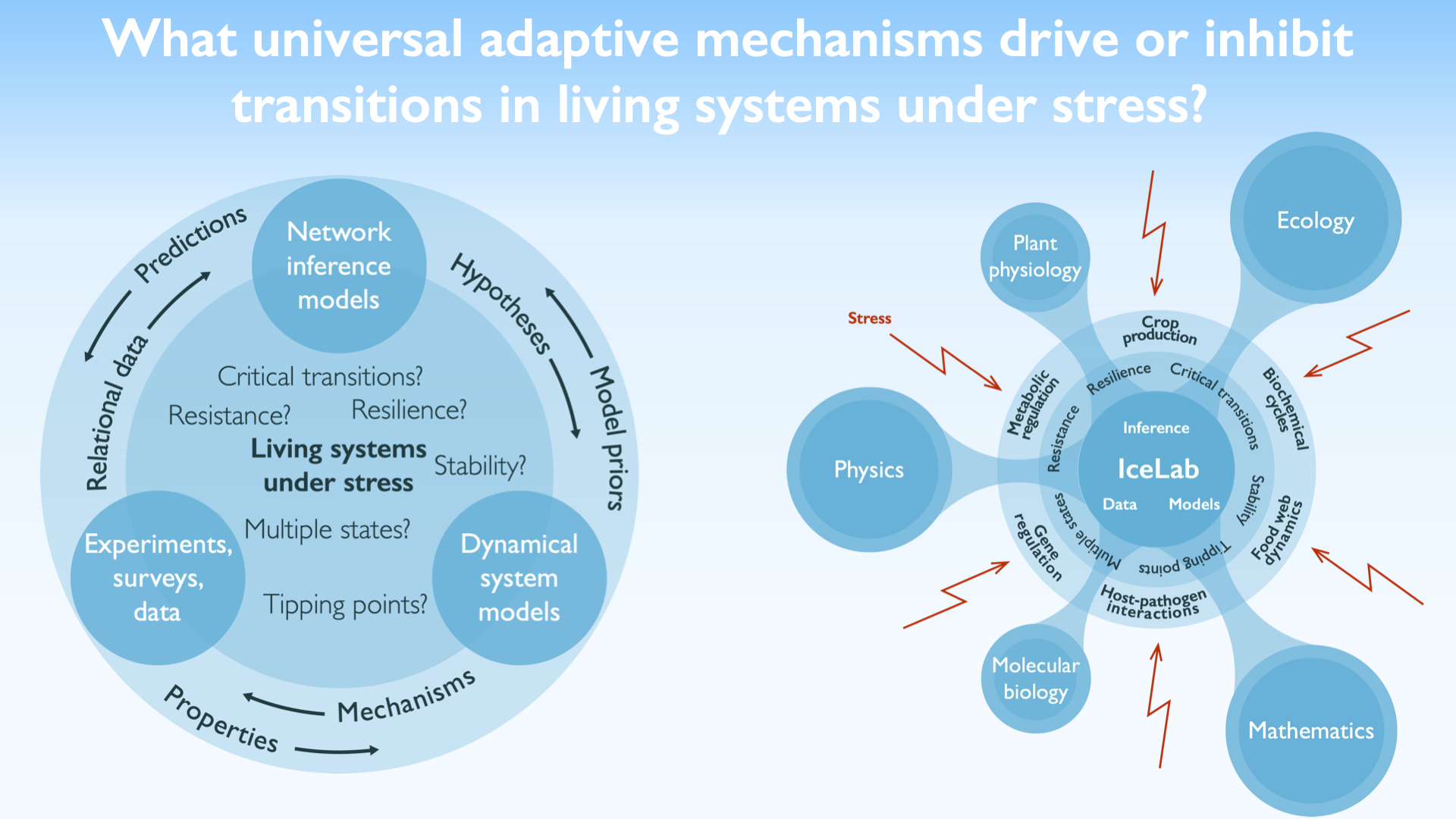New faculty for Stress Response Modeling excellence center
Two faculty positions are now open for application within the excellence center “Stress Response Modeling at IceLab”. IceLab seeks candidates who combine quantitative and computational literacy with domain-specific knowledge in plant physiology or ecology and environmental sciences.
IceLab (Integrated Science Lab) was successful in the recent Swedish Research Council’s excellence initiative and is now establishing a new Center for Modeling Adaptive Mechanisms in Living Systems under Stress. The center, which also uses the short name Stress Response Modeling at IceLab, is headed by Martin Rosvall together with Åke Brännström, Sebastian Diehl, Maria Fällman, Åsa Strand, Eric Libby, Ludvig Lizana and Kemal Avican. These new faculty recruitments will join the new excellence center and have a key role in carrying forward research under the center’s theme, as well as participating in the establishment of a graduate research school and other activities connected to modeling stress responses in living systems.
Martin Rosvall outlines the research gaps the current recruitment addresses by asking,“How do plants exposed to drought or other stressors handle it? When an ecological system faces anthropogenic pressures such as climate change, habitat degradation or pollution, how does it respond? We seek to strengthen the competencies within IceLab to help uncover common mechanisms underlying these responses, with new faculty who look beyond plant biology or ecology and can integrate their expertise within IceLab, where experiments, network models and process-based dynamic models all feed the research.”
The two faculty positions are at different career stages and connected to other departments and research centers at the university, in addition to IceLab. The first position is a tenure-track assistant professorship within the Department of Ecology and Environmental Sciences that broadly seeks researchers with experience of conducting ecological research including computational methods. The candidate will contribute to teaching in topics such as statistics, dynamical modeling or network approaches at the department.
Sebastian Diehl expands on the nature of this recruitment: “Many ecosystems are under stress from human-induced environmental changes. Addressing the consequences of these changes requires a dynamical systems perspective, because complex feedback processes make it impossible to predict ecosystem responses based on reasoning along simple, linear cause-effect chains. The center offers a platform for the integration of empirical knowledge with system-oriented modeling. The new position will strengthen that expertise at our department and increase interactions with the stimulating environment at IceLab.”
The second faculty position is for an associate professor at the Department of Plant Physiology and Umeå Plant Science Centre (UPSC). This new associate professor will lead a research group in modeling plant stress responses and will generate synergies between IceLab and UPSC, in addition to furthering the research and activities of the new IceLab excellence center.
Åsa Strand further expands on the benefits of this recruitment: “We see great opportunities here for novel and innovative systems biology projects where we can combine our expertise in plant biology at UPSC with mathematical modeling to describe plant development and growth as dynamic processes responding to the environment. Biophysical and dynamical modeling has a natural connection to the UPSC research environment, and we envision modeling activities both related to bioinformatics as well as more direct modeling of dynamical processes in cellular environments. These recruitments and the Center of Excellence in general will generate an important addition in competence and constitute a new and essential infrastructure for UPSC together with IceLab.”
What sets these recruitments apart from other faculty recruitments?
According to Sebastian Diehl, “One of the innovative strengths of the new center is that it connects scientists working across multiple levels of organization – from cells to ecosystems. We hope that researchers from different disciplines will inspire each other to identify commonalities (and differences!) in the regulation of stress responses in different types of biological systems.”
Åsa Strand highlights an additional benefit to Umeå University more generally by adding, “We anticipate that this approach to research, but also the resources and knowledge base developed within this Center of Excellence will provide positive stimulus to many different research environments at Umeå University.”
Both faculty positions offer start-up packages and interesting opportunities to join excellent and collaborative research environments within Umeå University.

